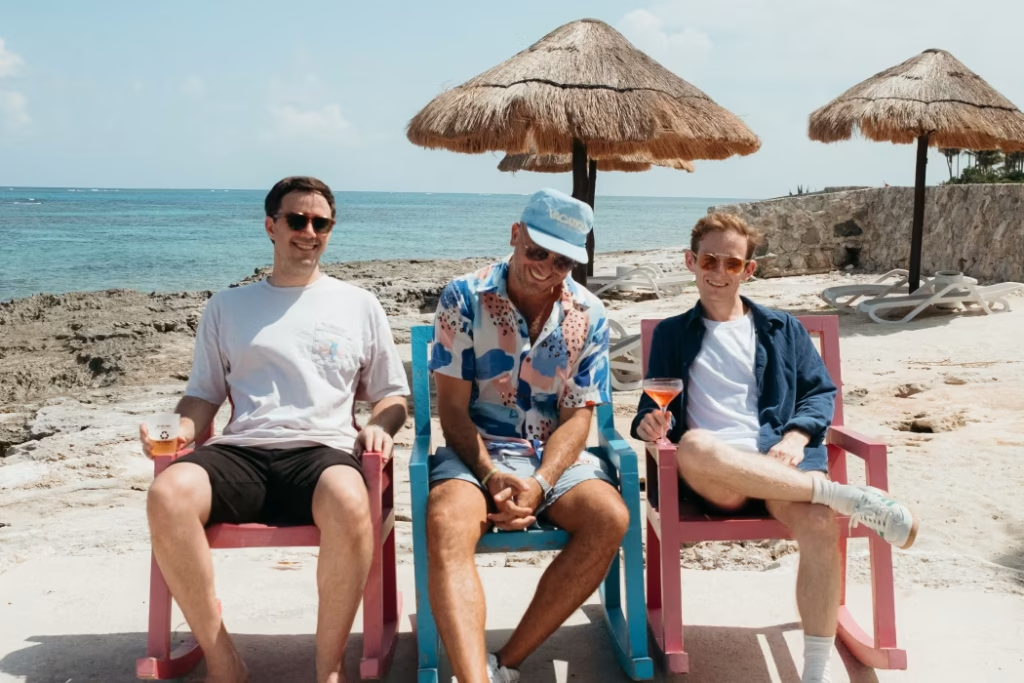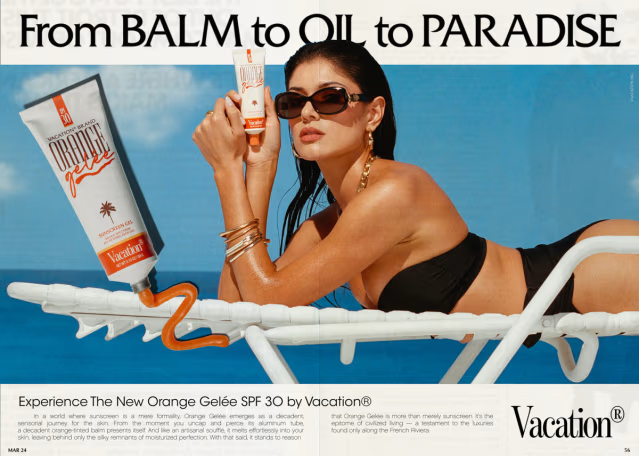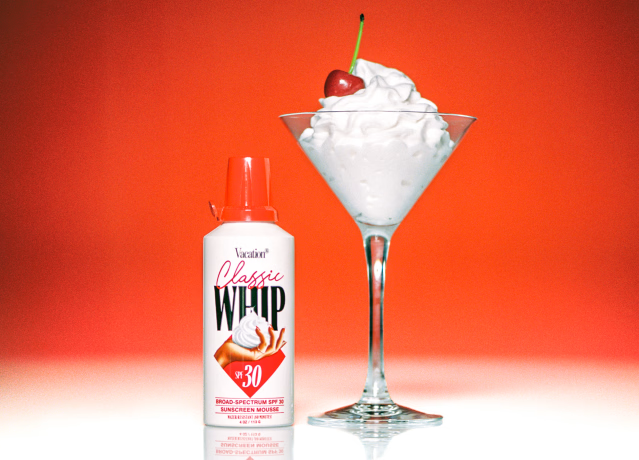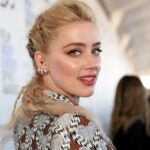
The vacation vibe sunscreen brand born during the pandemic, has one goal: make sunscreen amazing again.
The aesthetic says “beach club” and “margarita hour” at the same time. The site’s pop-up sale banners look like retro magazine coupons you’d cut out with scissors, complete with dotted lines. The SPF 30 mousse sprays out like whipped cream from a silver can, and the 20-ounce “jug” has a wristlet handle you can pop off and wear to the beach.
The vibe isn’t just fun—it’s selling.
Vacation launched as a direct-to-consumer brand in 2021 and hit $40 million in sales last year. The brand is on course to double that to $80 million by 2025 and says it was profitable in 2023. In the 12-month period ending June 30, it grabbed 1.1% of the U.S. sunscreen market, landing at number 13, according to Numerator. Just a year earlier, it ranked 24th with a 0.4% slice of the sales.
This year, Vacation pushed deeper into retail, launching in CVS, Costco, Nordstrom, and Bloomingdale’s. Target, its largest partner, has promoted the brand from the neglected bottom shelf to prime aisle ends and front-of-store displays. “Vacation is a top seller in our suncare lineup,” says Amanda Nusz, Target’s SVP of merchandising, essentials, and beauty.
Vacation has secured over $21.2 million to fund this momentum, including a $10 million Series B round last year led by True Beauty Ventures. Emma Stone and Janelle Monáe joined the round as angel investors.
The timing is clear. Buyers are swapping seasonal sunscreen for daily SPF, according to IBISWorld. The firm forecasts a 2.2% sales bump over the next five years, driven by younger companies that offer fresh formats and trendy formulas, even in a mature category.
Days of tanning past?
The founders of Vacation give off a vibe that says they’d rather be on the beach than in a boardroom. Lach Hall, an Aussie, and Marty Bell, a Scot, show up in the same loose combo of Casio watches and silky shirts, while Dakota Green, an American, sticks with T-shirts and well-loved caps.
None of them had touched personal care products before. Hall and Green spent years in New York building brands for other people, and during that time they lived together in Brooklyn and bonded over a shared, nerdy love for the loud colors and catchy typography of 1980s ads. They sketched the DNA of Vacation long before they knew what the end product would be. It wasn’t until they moved to Playa del Carmen in 2017 that the idea of sunscreen clicked loud and clear.
Hall and his co-founders first vibed with Bell after tuning into Poolside FM, the lo-fi retro radio stream that later morphed into Poolsuite, sprinkling Vacation’s sunny “la buena vida” mantra across playlists. The three pals dubbed the collab “Vacation by Poolside FM” and launched the brand together.

Their gut told them sunscreen had flatlined after people ditched the shine-shiny tanning mirrors and traded sun-soaked bronzes for SPF and skin cancer worry. So, to reclaim the beach-glow magic of the past, they dumped budget into dreamy packaging and must-have shelf presence. Vacation’s top-sellers now include the soltastic, frothy Classic Whip in the retro can and a hip remix of Bain de Soleil’s long-dead, glinty Orange Gelée.
Vacation does not flinch at giving away formula. It slides tubes to music festivals and park picnics to keep skin protected, plus ships 1,500 free samples a week to TikTokers, beach micro-influencers, and the odd newsletter writer. “Our one and only plan is to put the product in people’s palms,” Hall said, flashing a sun-chic grin. Even the quiet ones—no selfies, no reels—take the tube to the coast and pass it to a friend. That’s how the good times ripple.
Screen time?
The sunscreen aisle is packed, with fresh competition popping up everywhere. American brands now see heavier pressure from South Korean and European companies that use cutting-edge UV filters and lighter formulas, says IBIS World.
In the U.S., Edgewell’s Banana Boat still moves the most bottles, while Kenvue’s Neutrogena brings in the biggest dollar totals, according to market research cited by Happi Magazine.
Vacation, however, has tapped into Gen Z’s love for nostalgia and Instagrammable packaging, says Allison Collins, a former beauty editor and now co-founder of the advisory outfit the Consumer Collective. Its latest launches, including body mists, keep the brand trending on TikTok by staying affordable and easy to share, she explains.

“Fragrance brands usually struggle to create strong visual stories online, but mists cost less than full bottles, so spritzing on camera feels less extravagant,” Collins says.
Vacation’s retro vibe and meme-worthy packaging do spark some skepticism. One Reddit thread is bluntly titled, “Vacation sunscreen—is it really legit?”
Like many DTC sunscreen brands, Vacation ships its formulas to dermatologists for third-party testing and proudly flashes the “derm-approved” badge across its site.
Vacation is moving ahead with its bold personality while growing, Hall explained, pointing to a live brief asking for ideas that are just plain “wild.”
“For the record,” he added, “no one ever sat around a conference table and predicted that sunscreen mousse was going to steal the show.”





